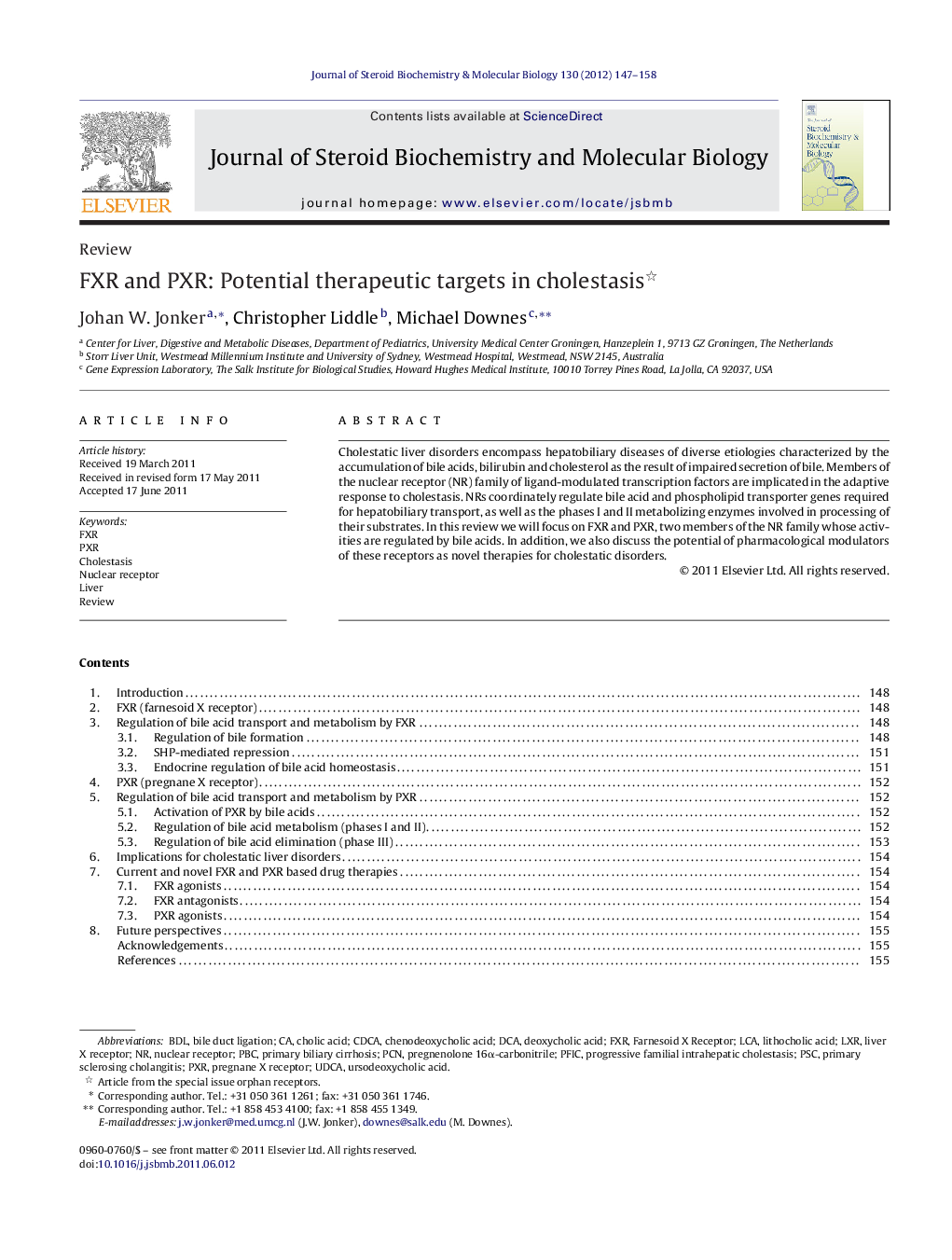| Article ID | Journal | Published Year | Pages | File Type |
|---|---|---|---|---|
| 1991628 | The Journal of Steroid Biochemistry and Molecular Biology | 2012 | 12 Pages |
Cholestatic liver disorders encompass hepatobiliary diseases of diverse etiologies characterized by the accumulation of bile acids, bilirubin and cholesterol as the result of impaired secretion of bile. Members of the nuclear receptor (NR) family of ligand-modulated transcription factors are implicated in the adaptive response to cholestasis. NRs coordinately regulate bile acid and phospholipid transporter genes required for hepatobiliary transport, as well as the phases I and II metabolizing enzymes involved in processing of their substrates. In this review we will focus on FXR and PXR, two members of the NR family whose activities are regulated by bile acids. In addition, we also discuss the potential of pharmacological modulators of these receptors as novel therapies for cholestatic disorders.
